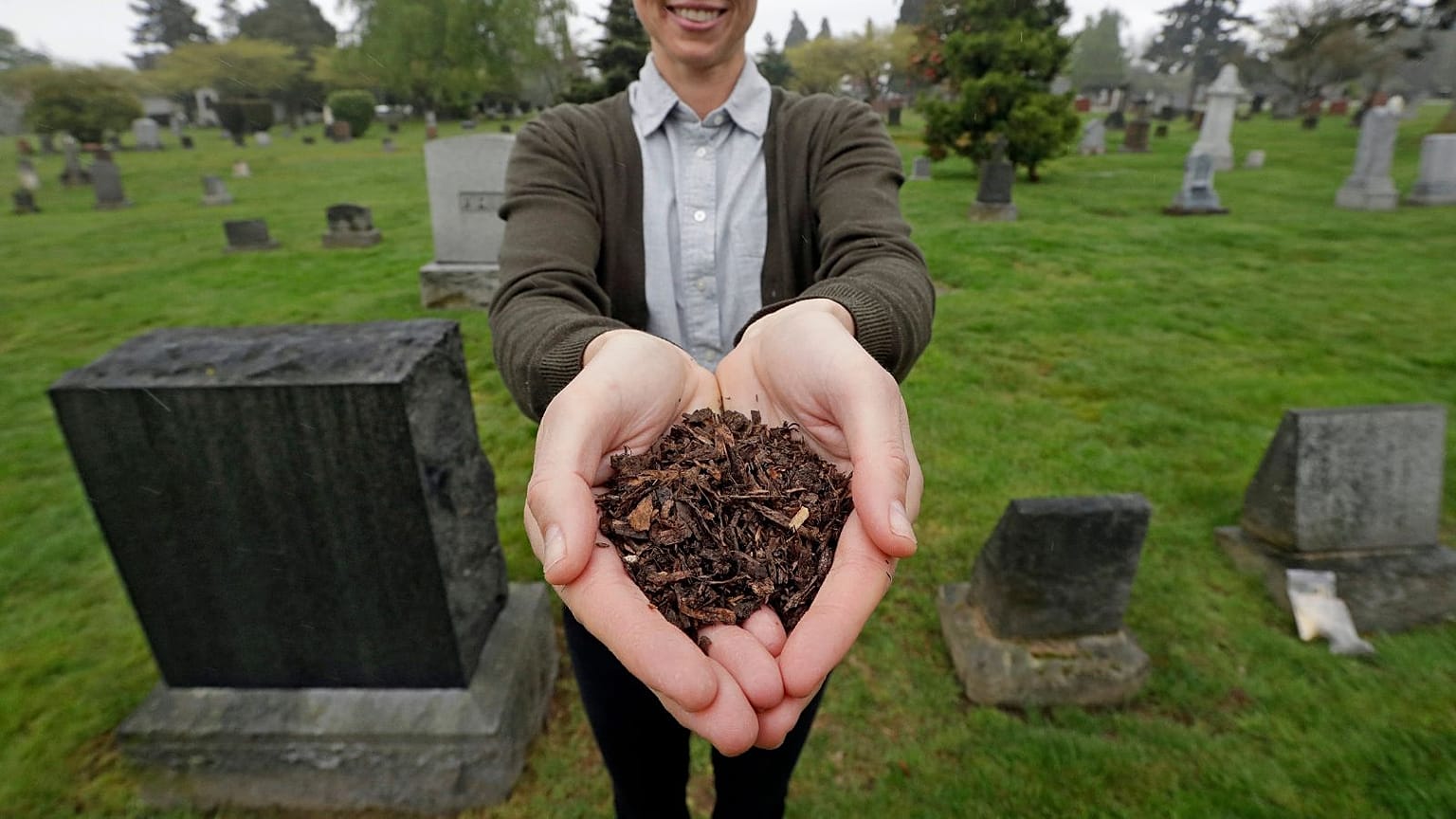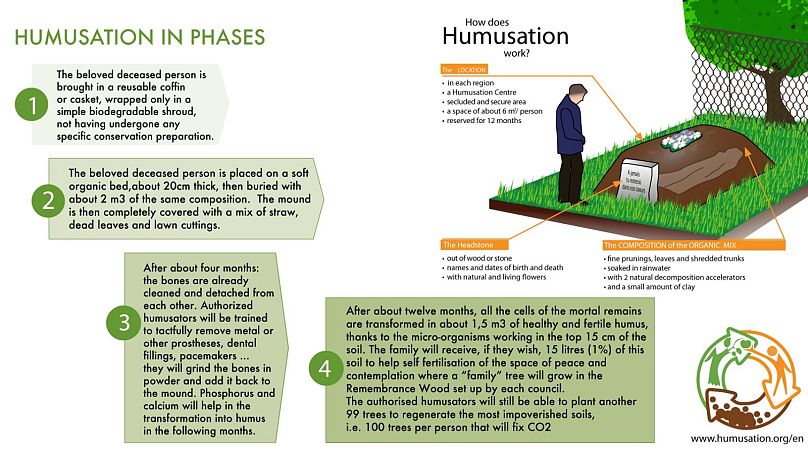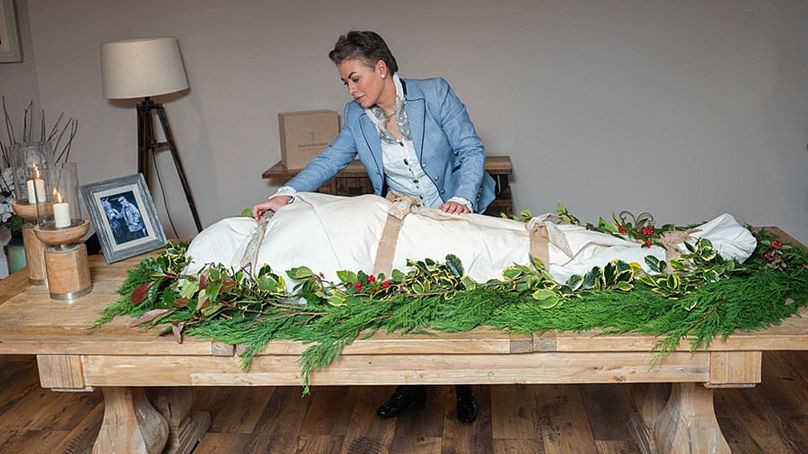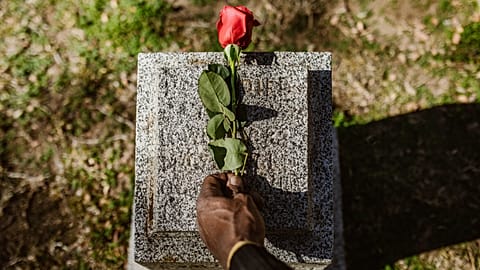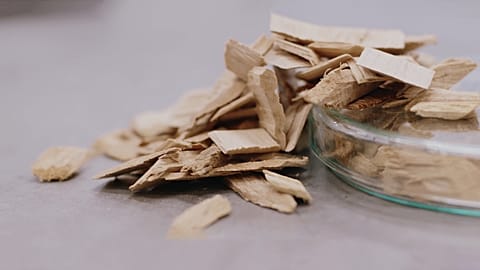Human composting, aquamation, terramation: your guide to the eco-friendly burial alternatives and where they are available in Europe.
Terramation or ‘human composting’ has been legalised in six US states recently yet it’s still not offered anywhere in Europe.
In most European countries the only options when you die are cremation or a traditional burial.
What you can do with a dead body is often heavily restricted, but there is a growing demand for more options, particularly ones that are environmentally friendly.
“Funerals are a real public health problem and a real pollution problem. But because it's a death issue, we're not going to talk about it,” says Frances Valdes, the president of Humusation France, a group that is campaigning for the legalisation of human composting. “So we turn a blind eye. We stick our heads in the sand.”
What is the environmental impact of cremation?
Cremations have a significant carbon footprint. The incineration of a body in a casket releases toxic waste gases such as nitrogen oxides and sulphur dioxide.
Around 245kg of carbon emissions are generated by one cremation, the equivalent of charging your smartphone over 29,000 times.
Traditional burials also have negative environmental consequences. The chemicals used in the embalming process can leak out and pollute the surrounding soil and waterways. Not to mention the logistical problem of finding enough space for gravesites.
The appetite for eco-friendly options is evident. A YouGov poll of 4,987 adults in the UK released this week found that 44 per cent probably would or definitely would consider being turned into compost when they die.
What exactly is human composting?
The body-composting process that has been legalised in Washington, New York, California, Colorado, Oregon and Vermont is called natural organic reduction or terramation.
Corpses are placed in airtight vessels and surrounded by a bulking mixture of the alfalfa plant and sawdust. These organics quickly gather and retain heat naturally, avoiding the costly fossil fuel expenditure of conventional crematoriums.
The heat speeds up the microbial activity and after about 30-50 days, the body is transformed into organic matter. Bones and teeth do not break down in this process and are ground down separately using specialised equipment and then mixed in with the rest of the soil.
The new soil is then left for around another 30 days to allow it to stabilise and dry before it is given to the family of the loved one.
Where has human composting been legalised?
Terramation is not available in any European country currently.
But it is not the only form of human composting that people are campaigning to bring to the continent.
A group in Belgium and France wants to introduce a different way called ‘humusation’.
“The process as we would like to have it legally adopted in France is the most natural process possible,” Florence Valdes, president of Humusation France, tells Euronews Green.
The body would not undergo the embalming process and would be placed on a secure, fenced-off plot of earth on a bed of organic material. It would then be covered by straw, dead leaves and lawn cuttings and left for four months.
After this time a trained person would be sent to remove any fillings or pacemakers and grind down the bones.
Another eight months in the correct conditions will fully decompose the body and turn it into ‘humus’, a highly fertile part of soil made up of decomposed organic matter.
In 2020, a study published by the Catholic University of Louvain examined how the process of humusation affects the bodies of pigs.
It found that the carcasses take much longer than expected to decompose, and produce compounds such as ammonia. It concluded that “natural humusation is not currently a viable alternative to cremation and traditional burial.”
In response, the Humusation organisation said there were serious methodological problems with the study and that the method of humusation used was not the same one it is advocating for.
What is the appeal of human composting/humusation?
For Valdes the appeal of humusation is having the end of her life match the environmentally conscious way that she has lived.
“From death comes life. Life is reborn from a dead body. And this is exactly the process of life in the forest. Because when you see all the animals that die in the forest, there is no one to go and bury them or cremate them. They die and the forest absorbs all these deaths that take place every day and there is no problem. So, nature is managing death. And it's us, as humans, who complicate things.”
We spoke to some Euronews Green readers who are also keen to have more sustainable end of life options.
“We are living in a time where so many are reconnecting to nature,” Rachael Close from the UK says.
“Terramation is the perfect natural way to dispose of our remains. Watching new things grow from the soil would comfort me.”
“Life is all about transformation,” Sara Machado from Portugal tells Euronews Green. “Having the chance to give back to the earth when I've taken so much from it seems the perfect closure to this circle.”
“Our relationship with death has to be talked about more,” she adds.
What happens during a water cremation?
And soil isn’t the only game in town when it comes to new eco-friendly options. Ireland is set to see Europe’s first water cremation facility open in the coming months.
“There’s a huge demand for greener end of life options,” Elizabeth Oakes, its founder, tells Euronews Green.
Oakes has a long-held passion for the funeral service industry. At the age of 18 she studied mortuary science in the US. During this time she began to research sustainable methods for burial and cremation and she discovered resomation, also known as water cremation or aquamation.
“We use water to bring the body back to its skeletal remains,” she explains.
“So basically [an] alkaline solution and the water and the heat [takes] the flesh back to its chemical components, which is amino acids, peptides, sugars and salts.”
The bones are removed and ground down to a fine white powder which is put into an urn and given back to the family.
Pure Reflections charge €1200 for the resomation process, which takes three or four hours to complete.
The anti-apartheid hero Desmond TuTu chose to be water cremated following his death in 2021.
He wanted an eco-friendly funeral and according to UK-based firm Resomation, aquamation uses five times less energy than a fire cremation.
What are the barriers to introducing eco-friendly burials in Europe?
Many European countries would need to change their laws to allow new options for the disposing of our remains, so change will take time.
In the case of humusation a campaign for legalisation is ongoing in France and Belgium.
French politician Elodie Jacquier-Laforge tabled a bill in the national assembly at the end of January that aims to allow the experimentation of human composting in France.
Valdes believes that certain attitudes hold Europe back when it comes to offering more options at death.
“There is a very conservative spirit in Europe. That's not the case in the Anglo-Saxon countries, notably the United States, Canada, etc. They are much more open to new processes,” she believes.
“But in Europe, we are very suspicious, we like to do what has been done in the past, even if it is no longer appropriate.”















